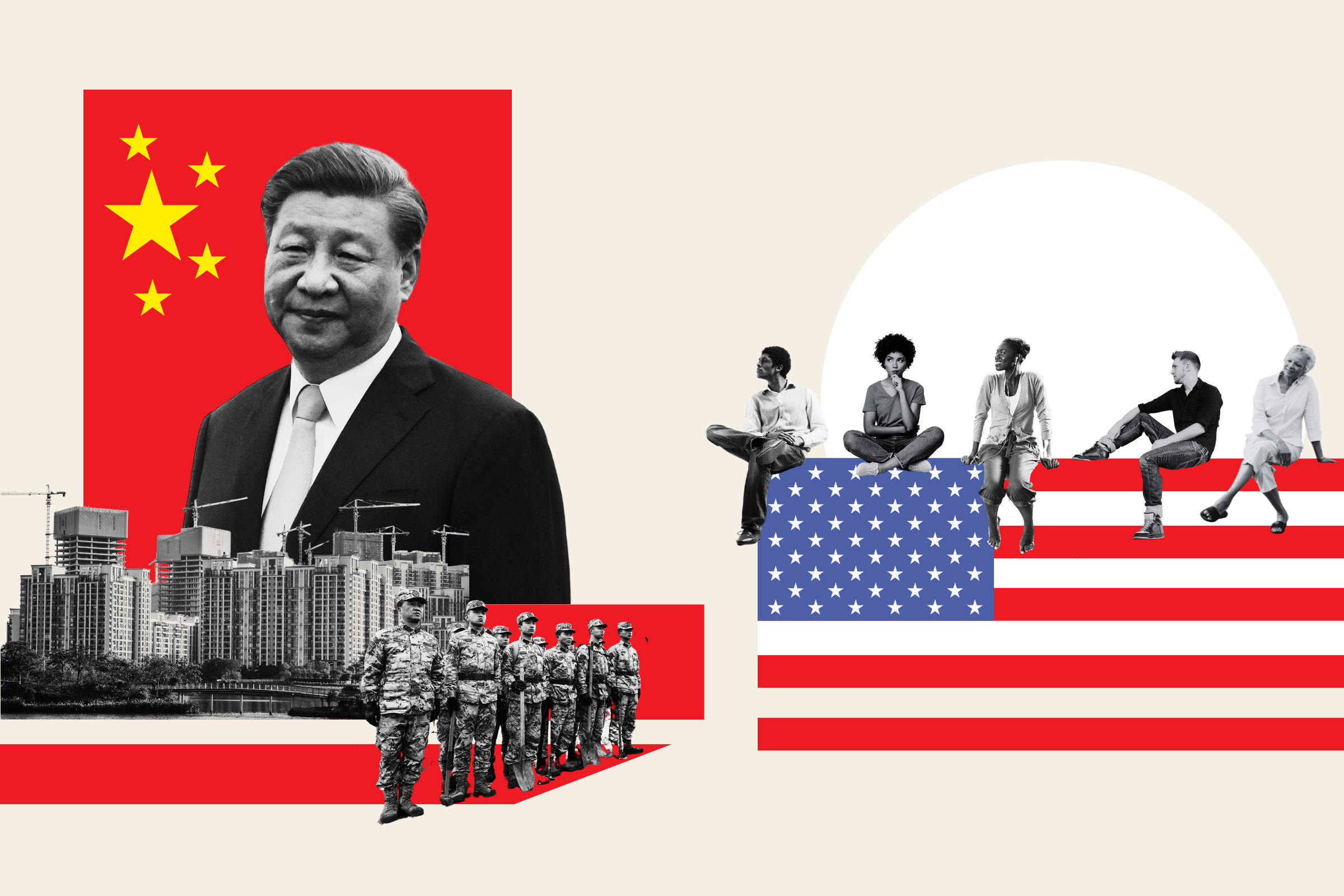Tokyo will become only the fifth city in history nest week to host two Olympic Games, when the Tokyo 2020 Games will get underway after a 12-month delay due to the coronavirus pandemic.
The Japanese capital first welcomed the event in 1964 and will join Athens, Paris, London and Los Angeles as the only cities to have hosted multiple Olympics. Paris and L.A. will stage the Games in 2024 and 2028 respectively, while Australia will become only the third country after the U.S. to host the Olympics when Brisbane welcomes the Games in 2032.
Here's a look at the cities that have previously hosted Olympic Games.
Athens—1896 and 2004
Athens was an unanimous as host city as Greece, the birthplace of Ancient Olympic Games, held the first Olympic Games in modern history in 1896.
According to the IOC, then in its relative infancy and far from being the bureaucratic behemoth it is now, just 14 countries and 241 athletes—all of them men—took part.
By the time the Olympics returned to Athens 108 years later, the number of countries and athletes participating had risen to 201 and 10,625 respectively. Just as they had done in 1896, the U.S. topped the medal table with Michael Phelps claiming six gold and two bronze medals.
A certain Usain Bolt, meanwhile, failed to qualify for the second round of the 200m in his Olympic debut.
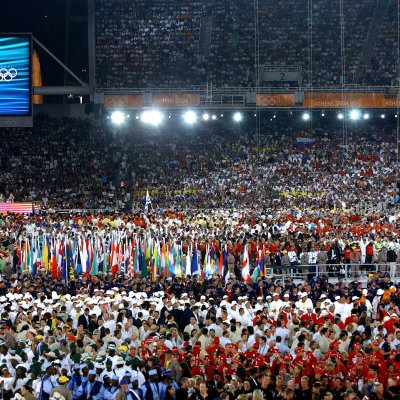
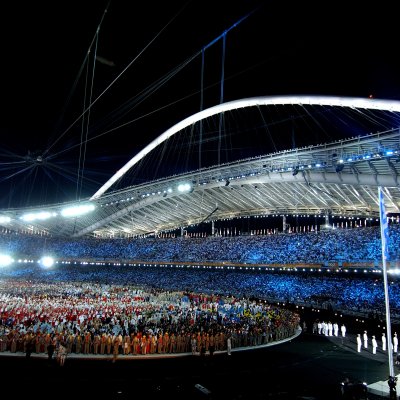
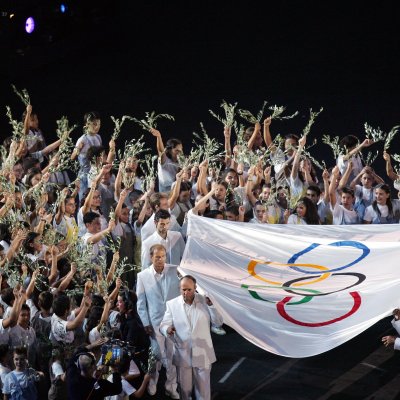
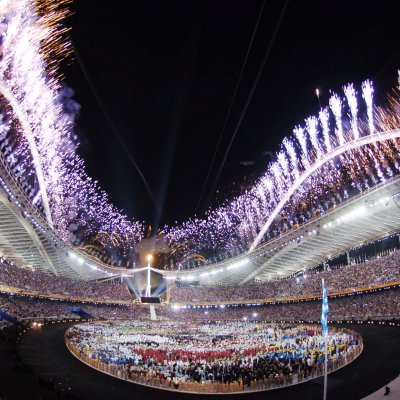
Paris—1900 and 1924
The 1900 Olympics took place in conjunction with the Paris World's Fair and lasted over five months. No opening or closing ceremonies were held and in marked contrast with the Olympic tradition, winners did not receive medals but trophies.
Even more bizarrely, car and motorcycle racing were considered Olympic events, as were ballooning and a 200m swimming obstacle race. Unsurprisingly for a nation that fielded over 70 percent of the 997 athletes that took part, France dominated the medal table.
Paris became the first city to host the Games twice less than three decades later, when the Olympics first formally adopted the Citius, Altius, Fortius (Faster, Higher, Stronger) motto and featured an Olympic Village for the first time.
St. Louis—1904
The first Olympic Games held in the U.S. lasted from the beginning of July until well past mid-November, even though technically the Games were only contested between August 29 and September 3.
Selecting St. Louis as the host city made travel excruciatingly difficult for foreign delegations. As a result, just 12 countries took part and the U.S. comfortably finished first in the medal table with 238 medals, a mere 223 more than second-place Germany.
As noted by David Wallechinsky in The Complete Book of the Olympics, a boxing winner was caught using a false name, while marathon runners were limited to two water breaks because James Sullivan, a member of the organizing committee, was eager to observe the effects "of purposeful dehydration."
New York bricklayer Fred Lorz won the marathon, only to be disqualified after it emerged he had covered part of the course in a car.
London—1908, 1948 and 2012
Hitherto the only city to have hosted the Games three times—Paris and Los Angeles will equal the record in 2024 and 2028 respectively—London has been the stage of memorable Olympic moments. In 1908, Dorando Pietri was stripped of the gold medal after being helped over the line by a concerned race official who thought the Italian marathon runner was about to collapse from exhaustion.
The incident was witnessed by Sherlock Holmes creator Arthur Conan Doyle, who attended the event as journalist for the Daily Mail. Four decades later, the British capital hosted the first post-World War II Olympics, with 59 nations represented by 4,104 athletes—the Soviet Union declined the invite—participating in the first Games in 12 years.
If the 1948 Olympics were known as the Austerity Games—no new venues were built for the occasion—no cost was spared when the Games returned to London 64 years later
From the opening ceremony, which memorably featured Daniel Craig as James Bond in a short clip with Queen Elizabeth II herself, the Games proved to be a roaring success, albeit one overshadowed by widespread doping use which saw 39 medalists stripped of their titles in the following eight years.
Michael Phelps became the most decorated Olympian of all time as he claimed his 22nd medal at the Games, while Usain Bolt won three golds.
Stockholm—1912
Women's diving and women's swimming made their Olympic debut, as did decathlon and pentathlon, but boxing was banned by Swedish authorities and Japan became the first Asian country to take part in the Games. The Stockholm Games would be the last Olympics to be held for eight years, at the scheduled 1916 Berlin Games would be canceled because of World War I.
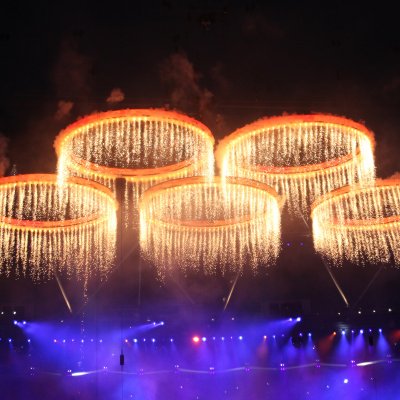
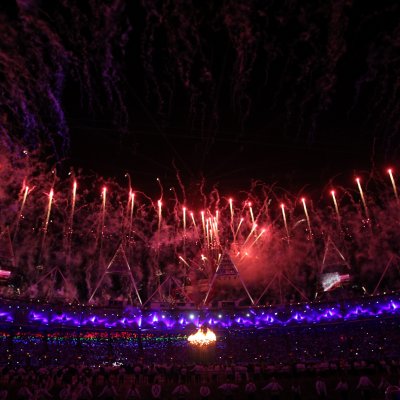
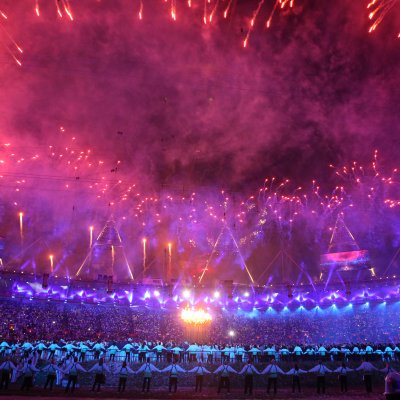
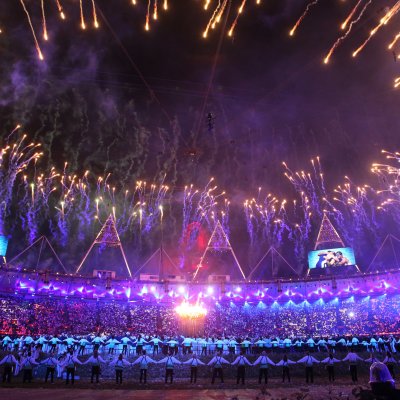
Antwerp—1920
The Olympics returned after an eight-year hiatus but the 1920 Games in Belgium were a subdued affair in a country still reeling from the destruction of World War I. The Soviet Union declined to participate, while Hungary, Germany, Austria, Bulgaria and the Ottoman Empire were banned altogether for their role in the war.
Amsterdam—1928
Having bid to host the 1920 and 1924 Games, Amsterdam eventually landed the Olympics in 1928, which marked the first edition in which the Olympic Flame was lit. For the first time, Greece was given the opening spot in the parade of nations, a position that it has retained ever since, and Coca-Cola made its first appearance as Olympic sponsor.
Meanwhile, Germany returned to the event for the first time in 16 years after being banned from participating in the 1920 and 1924 Games.
Los Angeles—1932 and 1984
If the St. Louis Games were hamstrung by complicated traveling arrangements, the second Olympics on U.S. soil were undermined by the Great Depression, which had severely dented economies in the U.S. and across the world. Only 37 nations were represented at the Games and Herbert Hoover became the second U.S. president after Theodore Roosevelt 28 years earlier to miss the event, despite the fact it was hosted by an American city.
Just over half a century later, the Games returned to the City of Angels and this time were officially opened by the U.S. President Ronald Reagan. Boycotted by a total of 14 Eastern Bloc countries including the Soviet Union and East Germany, the Games nevertheless proved to be a roaring success both from a sporting and commercial standpoint.
The U.S. topped the medal table for the first time since 1968 with 84 medals, as Carl Lewis equaled Jesse Owens' 1936 performance by winning four gold medals, while future Dream Team members Michael Jordan, Patrick Ewing and Chris Mullin made their Olympic debut as did rhythmic gymnastics, synchronized swimming and wind surfing.
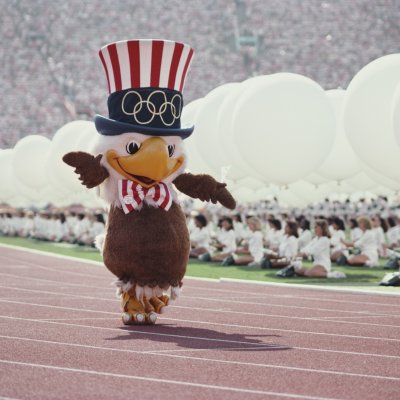
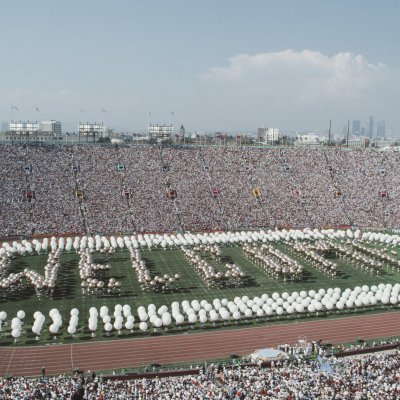
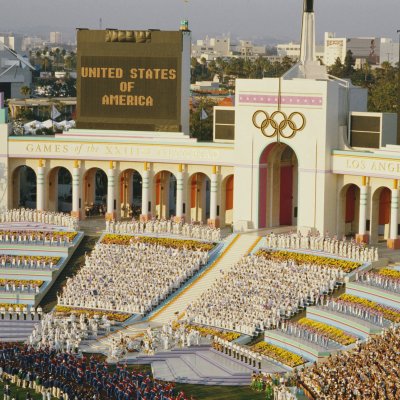
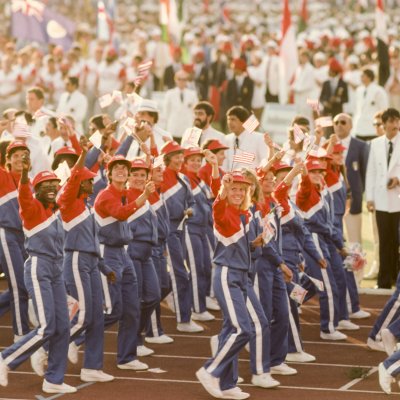
Berlin—1936
The Berlin Olympics proved a pivotal moment in the history of the Games and their impact stretched far beyond the boundaries of sport. The first Olympics to be televised, the Berlin Games were never meant to be just a sporting event as Adolf Hitler saw them as the ideal opportunity to promote his ideals of racial supremacy and antisemitism.
German Jewish athletes were either barred of prevented from attending the games and several Jewish athletes from other nations also withdrew. Jesse Owens, the Black U.S. sprinter, was the undisputed star of the Games and won four gold medals but would never defend his title as the Olympics would not be held again until 1948 because of World War II.
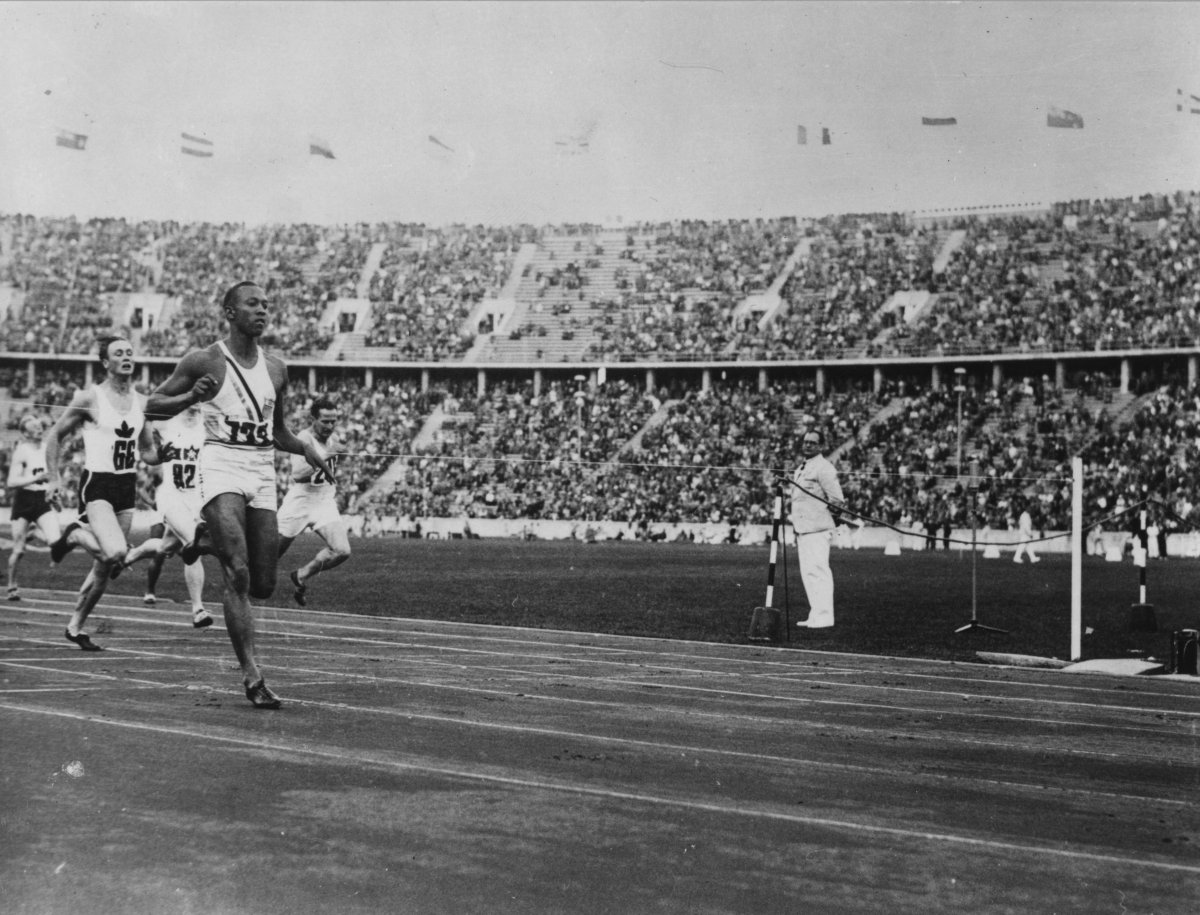
Helsinki—1952
The Soviet Union entered the Olympic arena and immediately announced itself as one of the superpowers, winning the second-most number of golds and overall medals. For all the Soviet success, however, the star of the Games was unquestionably Czechoslovak long-distance runner Emil Zátopek, who won the 5,000m and 10,000m events and then secured a stunning gold in the marathon, despite having never raced the distance before.
Melbourne—1956
The honor of being the first Southern Hemisphere city to host the Olympics fell to Melbourne in 1956 when it became apparent politics was playing an ever-growing role in sport. The Netherlands, Spain and Switzerland boycotted the Games after the IOC allowed the Soviet Union to participate despite its invasion of Hungary, while Egypt, Iraq, Lebanon and Cambodia declined to attend the Games in response to the Suez Canal Crisis which had seen Egypt invaded by Britain, France and Israel.
China also chose to boycott the Games after Taiwan was allowed to compete.
Rome—1960
The Olympics returned to Europe in 1960, with 18-year-old Cassius Clay—who would convert to Islam and eventually change his name to Muhammad Ali—claiming the gold medal in boxing's light-heavyweight event. Meanwhile, Abebe Bikila of Ethiopia became the first Black African Olympic champion after triumphing in the marathon, which he ran barefoot.
One of the 83 participating nations, South Africa made its last Olympic appearance under its apartheid regime for over three decades until it was allowed back at the Barcelona Olympics in 1992.
Tokyo—1964
Tokyo's first foray as Olympic host city came with a series of significant firsts. The 1964 Olympics were the first to include Paralympic Games, the first to be held in Asia and the first to be telecast worldwide by using satellite communication as opposed to having tapes flown overseas instead.
Yoshinori Sakai, who was born in Hiroshima the day an atomic bomb was dropped on the city on August 6, 1945, was the final torch bearer and lit the Olympic Flame during the opening ceremony, which symbolically represented Japan's post-war reconstruction effort.
Abebe Bikila became the first man to win the Olympic marathon twice, while Joe Frazier won the gold medal in heavyweight boxing despite fighting with a broken thumb.
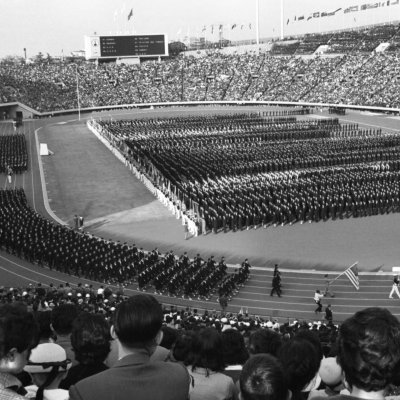
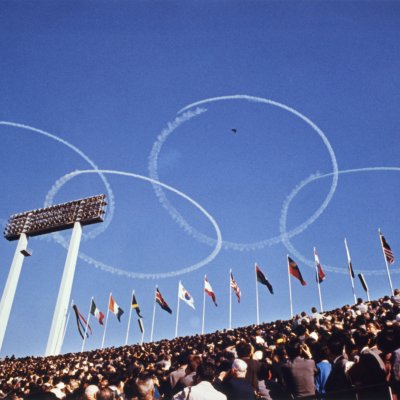
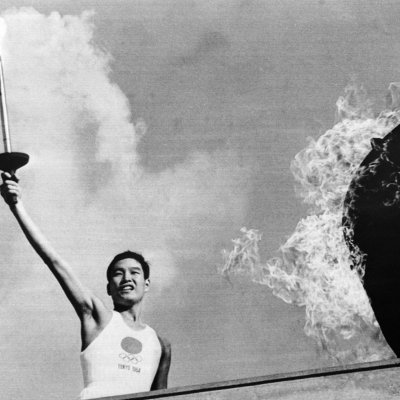
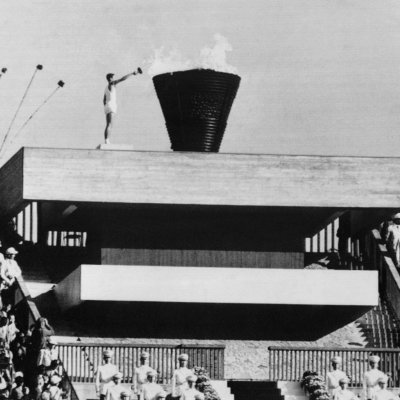
Mexico City—1968
The first Games to be held in Latin America, the Mexico City Olympics would go down in history as the first to use an all-weather track instead of a cinder track for track and field events and electronic timekeeping equipment. U.S. sprinters Tommie Smith and John Carlos, the gold and bronze medalist in the men's 200m respectively, wrote themselves in Olympic lore by raising a black-gloved fist and lowering their heads during the playing of the U.S. national anthem to show solidarity with the Black Freedom Movement.
Smith and Carlos were eventually expelled from the U.S. team after pressure from the IOC.
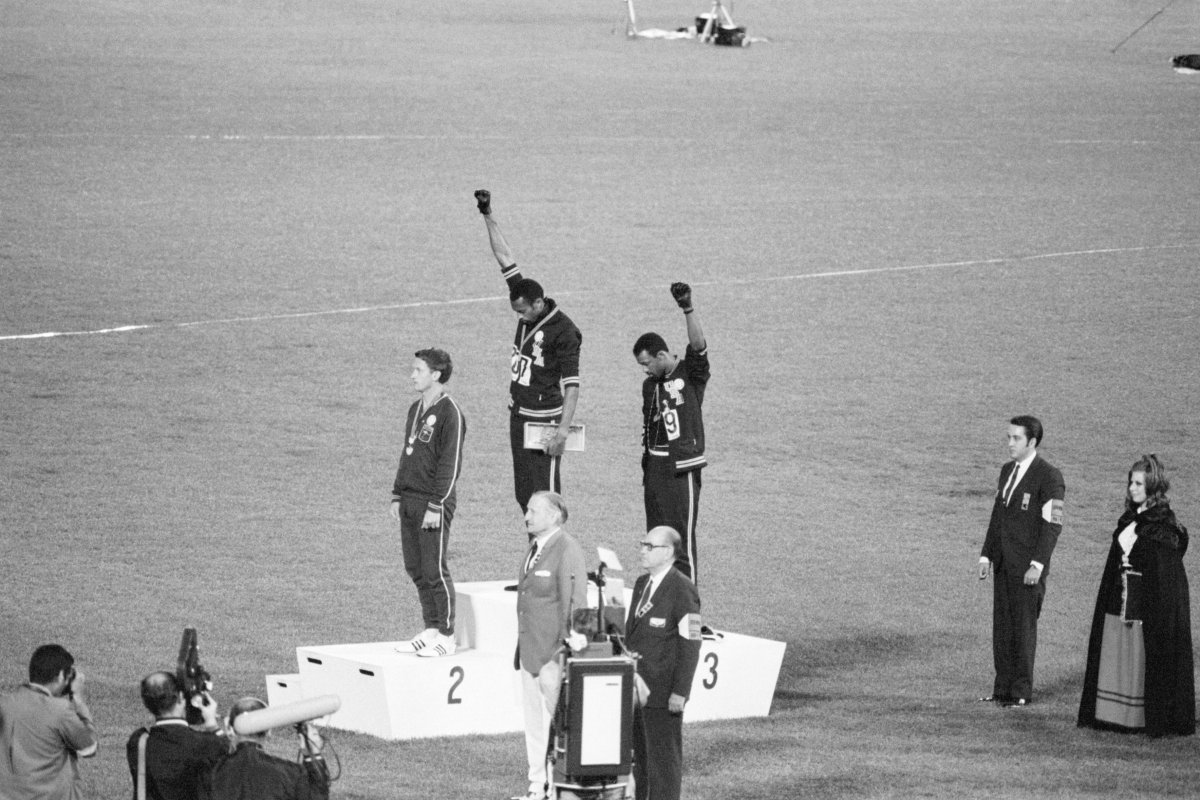
Munich—1972
The 1972 Games were unquestionably the Olympics' darkest page. Eleven Israeli athletes and coaches and a West German police officer were killed by terrorists belonging to the Palestinian Black September group, following a standoff that lasted for almost 18 hours and unfolded in front of TV cameras broadcasting the scenes worldwide.
The attack overshadowed most of the Games, in which U.S. swimmer Mark Spitz set an Olympic record by winning seven gold medals in the same Games, a record which was eventually broken by Michael Phelps in 2008. The Soviet Union, meanwhile, snapped the U.S. run of seven consecutive gold medals in men's basketball, prevailing 51-50 in one of the most dramatic and controversial finals ever played.
Montreal—1976
Canada's first and hitherto only Summer Olympics were beset by boycotts. Some 29 countries, most of them African, pulled out of the Games in response to the IOC's decision to allow New Zealand to compete at the Olympics, despite the fact the country's rugby team had toured South Africa earlier in the year in defiance of calls for a sporting embargo of the country.
The Games were the first to be opened by Queen Elizabeth II and saw the Soviet Union top the medal table both in terms of overall medals and in terms of gold medals won.
Moscow—1980
The first and so far only Olympics held in Eastern Europe, the 1980 Games were boycotted by the U.S. over the Soviet-Afghan War, while 65 other countries and regions snubbed the Games.
Some of those that took part, such as Great Britain and Ireland sent just one representative to take part in the opening ceremony. Australia and Ireland, along with Denmark, Andorra and Puerto Rico allowed athletes to participate but under the Olympic flag, while New Zealand, Spain and Portugal competed under their own National Olympic Committee flags.
The Soviet and Eastern Bloc countries would return the treatment four years later, boycotting the Los Angeles Olympics.
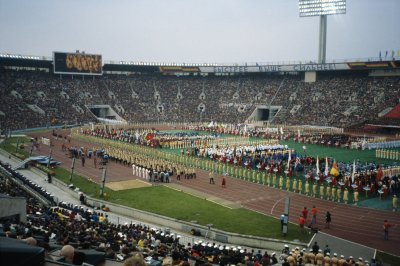
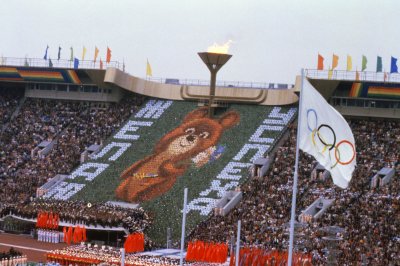
Seoul—1988
Every country in the world bar seven took part in the 1988 Olympics, an important milestone as the Seoul Games marked the last before the disintegration of the Soviet Union and the fall of the Berlin Wall in 1989. The late U.S. sprinter Florence Griffith Joyner won gold in the 100m and 200m, while Canada's Ben Johnson set a world record as he won the 100m, only to be stripped of his title after failing a doping test. West Germany's Steffi Graf won the gold medal as tennis returned to the Olympics for the first time in 64 years.
Barcelona—1992
The Games' return to Western Europe for the first time in two decades and for the first time since 1972 they were unaffected by boycotts. South Africa returned to the Olympic arena after a 32-year ban, while Germany sent a unified team for the first time since 1964. The former Soviet Union countries and the Baltic States competed under the flag of the Unified Team, which topped the medal table with 112 overall medals and 45 golds. NBA players were admitted at the Olympics for the first time and the Dream Team stole the show, swatting aside opponents en route to the gold medal.
Atlanta—1996
Atlanta was the surprise choice to hold the Centennial Olympic Games, beating Athens in the process. Muhammad Ali lit the Olympic Flame and the U.S. topped the medal table for the first time since 1984. Andre Agassi became the first man in tennis history to win an Olympic gold medal as well as a career Grand Slam, while Michael Johnson won gold in the 200m and 400m. The Games, however, were also marred by tragedy when two people were killed by a pipe bomb that was detonated at Centennial Olympic Park on July 27, just eight days after the opening ceremony.
Sydney—2000
The Games returned to Australia for the first time in 44 years when Sydney hosted the first Olympics of the 21st century. One of the most successful Olympics in history, the Sydney Olympics set the blueprint for the modern games.
In a nod to the country's Aboriginal community, Australian sprinter Cathy Freeman was given the honor of lighting the Olympic Flame and she then set the Olympic Stadium alight by triumphing in the 400m. The U.S., meanwhile, finished top of the medal table yet again.
Australia will host the Games for the third time in 2032, when the Olympics will head to Brisbane.
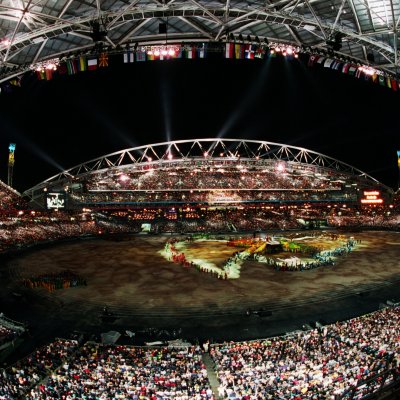
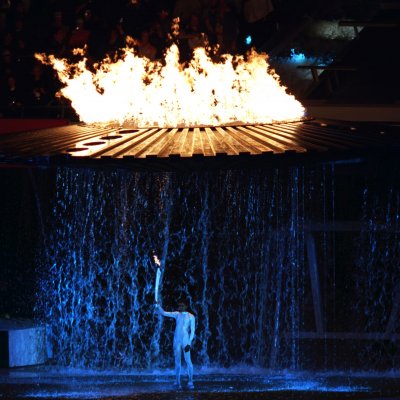
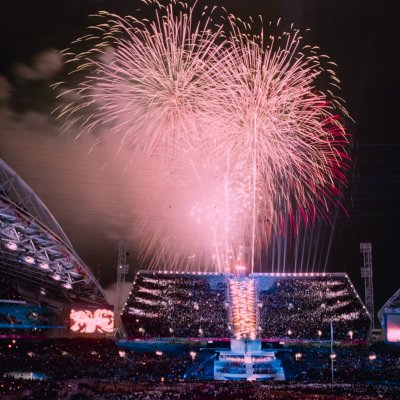
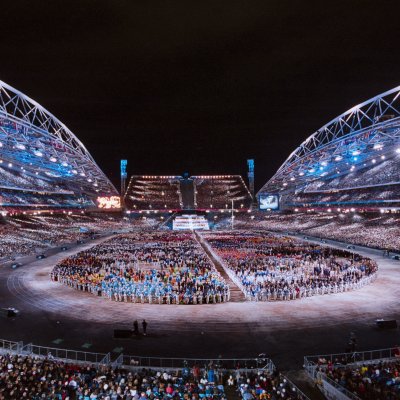
Beijing—2008
China hosted its first Olympics in 2008, wowing spectators with a spellbinding opening ceremony and dominating the medal tally with 48 gold medals and 100 overall—the U.S. finished second, having won 112 medals overall but fewer golds. World records and Olympic records tumbled at a rate of knots, with 37 new world records and 125 new Olympic records set in Beijing. Swimming alone contributed an astonishing 25 and 65 records respectively, thanks to the use of the controversial—and now banned—NASA-developed LZR Racer swimsuit. Michael Phelps made Olympic history by winning eight gold medals in the same Games, one more than the record Mark Spitz had set in Munich in 1972.
Rio de Janeiro—2016
The most recent edition of the Games, the Rio Olympics were the first to be held in South America and welcomed the arrival of rugby sevens and golf. Beset by environmental problems, political and economic crisis, an ongoing doping scandal involving Russia and fear over the Zika virus epidemic, the Games appeared to be destined to take place under a cloud but went ahead relatively trouble-free. The U.S. again topped the medal table, finishing just ahead of Great Britain.
Uncommon Knowledge
Newsweek is committed to challenging conventional wisdom and finding connections in the search for common ground.
Newsweek is committed to challenging conventional wisdom and finding connections in the search for common ground.
About the writer
Dan Cancian is currently a reporter for Newsweek based in London, England. Prior to joining Newsweek in January 2018, he ... Read more
To read how Newsweek uses AI as a newsroom tool, Click here.





